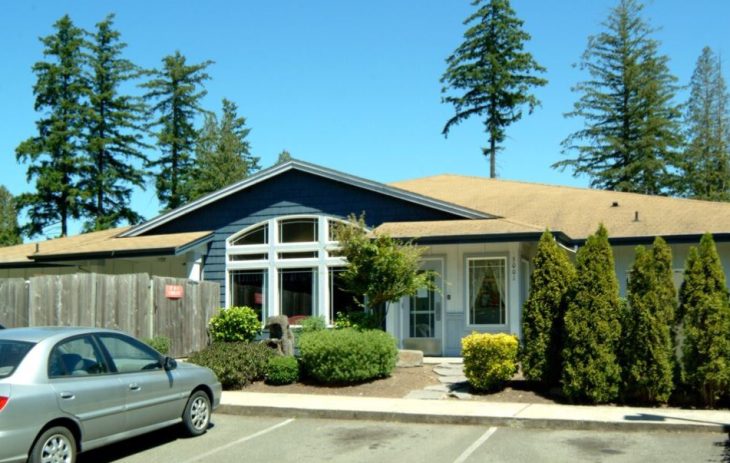About Prosperity Wellness Center Residential Services
Based in Tacoma, Washington, is Prosperity Outpatient Wellness Center. As a dedicated drug rehab and addiction treatment facility, they offer care for clients of all ages, including individuals with co-occurring mental and behavioral health issues.
Outpatient Addiction Treatment in Tacoma
This organization has been providing treatment for substance use disorder (SUD) and co-occurring mental and behavioral health conditions since 1992. With decades of experience, their approach focuses on getting to the trauma behind the addiction in order to allow meaningful change and healing to begin.
For individuals who would benefit from more flexibility on their recovery journey, the center offers intensive outpatient (IOP) and standard outpatient programming, as well as virtual telehealth outpatient options.
While participating in these programs, clients can expect individual and group therapy sessions, using styles like cognitive behavioral therapy (CBT), dialectical behavior therapy (DBT), motivational interviewing and somatic therapy. 12 Step facilitation services are also available, along with assessments and deferred prosecution services for individuals who have received a DUI or DWI charge.
Residential Treatment & Medication Assisted Treatment (MAT)
For individuals in need of more intensive treatment, referrals can be made to the facility’s nearby residential treatment location in Tacoma. There, the philosophy is all about creating a safe, supportive space that feels like a home away from home. As part of residential care, clients can access similar services to the outpatient program, with additional medication assisted treatment (MAT) as an option. Medicines used for this treatment include FDA-approved Suboxone and Vivitrol.
Levels of Care
-
Inpatient
Inpatient and residential programs provide round-the-clock medical and emotional support as you live at the treatment facility. This level of care may be recommended if you have severe addictions or mental health conditions since it removes outside distractions and allows you to focus solely on therapy.
-
Outpatient
In outpatient therapy, you’ll attend therapy sessions several times each week while living at home. This is ideal if you have a strong support system and a lower risk of relapse. Outpatient treatment offers flexibility to maintain work, school or family obligations.
-
Aftercare
Aftercare programs provide ongoing support after you complete a rehab program. They may include several components to help you maintain sobriety including therapy, community support groups and relapse prevention strategies. This gives you a network of resources as you reintegrate into your daily life.
-
Dual Diagnosis
Dual diagnosis programs address substance use disorders and co-occurring mental health conditions simultaneously. This integrated approach to care improves the likelihood of long term recovery and stability by addressing the root causes of addiction.
Detox Service Setting
-
Inpatient Detox
Inpatient detox occurs in a dedicated treatment facility. You’ll live there around the clock and receive intensive medical support and supervision to help manage your withdrawal symptoms. It is suitable for individuals with moderate to severe addictions as it ensures a stable detox environment.
-
Outpatient Detox
Outpatient detox gives you access to medically supervised withdrawal services while still allowing you to live at home. You’ll attend a clinic for treatment and monitoring. This flexible option is suitable for those with mild to moderate withdrawal symptoms who have strong support systems.
Programs
-
Adult (18+)
Adult programs address the substance use and life challenges specific to adults. Therapists can deliver sessions in individual, group and family settings. Services often include job support and life skills training in a structured environment.
-
Alcohol Detox
Alcohol detox programs offer medical support to help individuals withdraw safely from alcohol. Your care team may use medications to ease your symptoms and provide medical monitoring to address complications.
-
Cognitive Behavioral Therapy
Cognitive behavioral therapy focuses on changing harmful thought patterns and behaviors associated with addiction. You’ll learn healthier coping mechanisms by identifying and replacing negative thoughts. This improves your emotional resilience and decreases your relapse potential.
-
Rational Behavior Therapy
Rational behavior therapy helps you identify irrational beliefs that contribute to an addiction. Challenging and modifying those beliefs helps you develop healthier attitudes and behaviors. This therapy supports long term sobriety and sustainable recovery.
-
Women
Women's programs offer a safe and supportive space to focus on gender specific issues such as trauma, family roles and mental health conditions. Therapists tailor the sessions to address women's needs and foster empowerment in a healing and nurturing environment.
-
Young Adult (18 - 25)
Young adult programs are designed for individuals who are transitioning into adulthood. Topics of discussion typically include identity, independence and peer relationships. Providers may also offer life skills training and career support.
Payment Options
- Payment Assistance
- Medicaid
- Medicare
- Self Pay
Accreditations
-
 SAMHSA
SAMHSA
Contact
12201 Pacific Ave S
Tacoma, WA 98444





